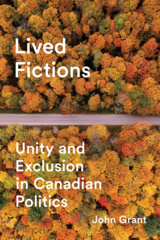
Recognition versus Self-Determination
Dilemmas of Emancipatory Politics
The political concept of recognition has introduced new ways of thinking about the relationship between minorities and justice in plural societies. But is a politics informed by recognition valuable to minorities today?
Contributors to this volume examine the successes and failures of struggles for recognition and self-determination in relation to claims of religious groups, cultural minorities, and indigenous peoples on territories associated with Canada, the United States, Europe, Latin America, India, New Zealand, and Australia. The chapters look at cultural recognition in the context of public policy about intellectual and physical property, membership practices, and independence movements, while probing debates about toleration, democratic citizenship, and colonialism.
Together the contributions point to a distinctive set of challenges posed by a politics of recognition and self-determination to peoples seeking emancipation from unjust relations.
A resource for community advocates and leaders working and living at the forward edge of indigenous politics, it will also interest political scientists, sociologists, and legal scholars.
Avigail Eisenberg is a professor and chair of the Department of Political Science at the University of Victoria. Jeremy Webber is Dean of Law and Canada Research Chair in Law and Society at the University of Victoria. Glen Coulthard is a member of the Yellowknives Dene First Nation and is an assistant professor in the First Nations Studies Program and the Department of Political Science at the University of British Columbia. Andrée Boisselle is an assistant professor at Osgoode Hall Law School at York University.
Contributors: Yasmeen Abu-Laban, François Boucher, Kirsty Gover, Courtney Jung, Rinku Lamba, Zoran Oklopcic, Ghislain Otis, Michel Seymour, Jakeet Singh, and Melissa S. Williams.
Preface
Introduction: On the Use and Abuse of Recognition in Politics / Melissa S. Williams
Part 1: Recognition and Self-Determination: Connections and Tensions
1 Race, Class, and Ethnicity in the History of Mexican Indigenous Politics / Courtney Jung
2 Recognition and Self-Determination: Approaches from Above and Below / Jakeet Singh
3 Two Faces of State Power / Rinku Lamba
Part 2: The Practice of Recognition and Misrecognition, Self-Determination, and Imposition
4 A Farewell to Rhetorical Arms? Unravelling the Self-Determination of Peoples / Zoran Oklopcic
5 The Politics of Recognition and Misrecognition and the Case of Muslim Canadians / Yasmeen Abu-Laban
6 Place against Empire: The Dene Nation, Land Claims, and the Politics of Recognition in the North / Glen Coulthard
7 The Rights of Indigenous Peoples to Self-Determination and the Struggle against Cultural Appropriation / Francois Boucher
8 Inter-Indigenous Recognition and the Cultural Production of Indigeneity in the Western Settler States / Kirsty Gover
Part 3: Possible Ways of Reframing the Issues
9 Recognition, Politics of Difference, and the Institutional Identity of Peoples / Michel Seymour
10 Custom and Indigenous Self-Determination: Reflections on “Post-Territoriality” / Ghislain Otis
11 The Generosity of Toleration / Jeremy Webber
12 Self-Determination versus Recognition: Lessons and Conclusions / Avigail Eisenberg
Index













